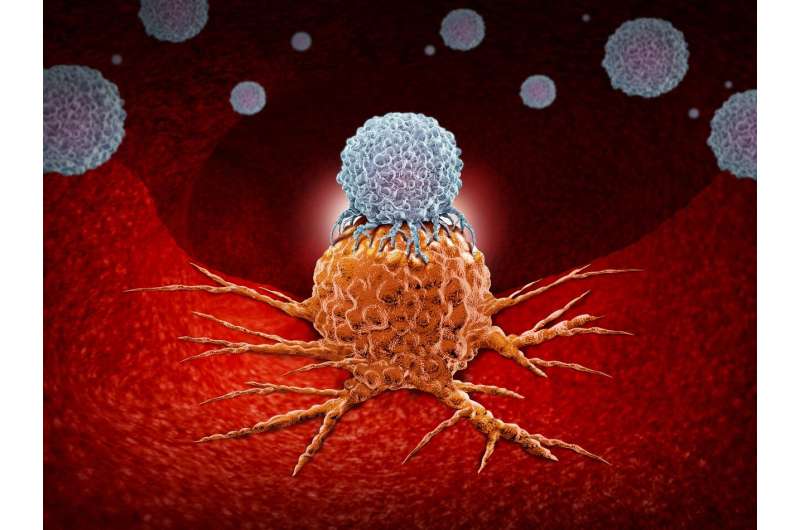Treatment enhances natural killer cell function and provides antitumor activity against CD19-positive cancers


Several treatments for cancer have been devised by science, but unfortunately, none of them are completely efficient or foolproof. Novel treatments with minimum side effects are one of the main aims of ongoing cancer research. Among prevailing therapy models, immunotherapy, which weaponizes the body’s own immune system against cancer, is a promising option. Bispecific antibodies (BsAbs) are synthetically made proteins that have emerged as a promising second-generation immunotherapy. They engage with immune cells and enable them to target cancer in a specific manner.
Conventional use of T cells for this therapy has caused adverse effects in some cases. Moreover, they are ineffective against cold tumors, which are invisible to T cells. This has led to a search for other immune cells that could effectively target cold tumors with minimum adverse effects. Natural killer (NK) cells have therefore gained attention as prospective immunotherapy agents.
Now, a research team from China has designed a trispecific antibody that targets cancer cells and NK cells using anti-CD16, -IL15 and -CD19 domains. They call this molecule 161519 TriKE. As Dr. Zhigang Tian, one of the members of this research team and co-corresponding author of this study, explains, “Our intention was to attract CD19-positive tumor cells (such as the cells in Burkitt’s lymphoma) to CD16-positive NK cells. IL15 can be used to maintain continuous division, development and survival of NK cells, increasing their efficiency. Simply put, this protein acts like a handcuff, bringing cancer cells to killer immune cells. Additionally, these handcuffs have a trigger that keeps the killer cells active to destroy the cancer cells more efficiently.”
In their study published in Cancer Biology & Medicine, the scientists used 161519 TriKE to target CD19-positive cancer cells in cell culture and measured the expression of markers that signify a successful immune response. They observed that several such markers increased in cells treated with 161519 TriKE. To test its preclinical efficiency, researchers developed immune-reconstituted xenograft mouse models, which are genetically engineered mice that constitute human peripheral blood mononuclear cells (PBMCs) and human tumors. The researchers tested to see if 161519 TriKE is able to initiate an immune response in these mice. 161519 TriKE was found to improve the interaction between NK cells and CD19-positive tumor cells. The team also found that 161519 TriKE is able to initiate a strong cytotoxic action of NK cells against tumor cells in cell culture. These results were same in live animals, as well. Not only could 161519 TriKE successfully reduce tumor growth, it could also increase the overall survival of tumor-bearing mice.
So what does this mean for cancer medicine? Prof. Haoyu Sun, co-corresponding author, explains the implications of their findings: “This study effectively provides a new method to develop immunotherapies against cancer. 161519 TriKE has the ability to transform research into application and shows potential for drug development. It can also be used in combination with other NK cell-based therapies.”
Source: Read Full Article